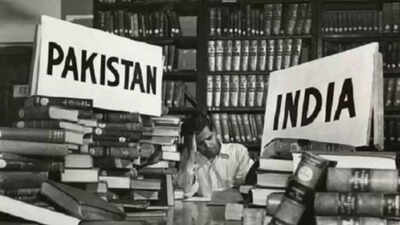ARTICLE AD BOX

NCERT’s newly released special modules for the Partition Horrors Remembrance Day have stirred controversy by directly naming Muhammad Ali Jinnah, the Congress, and Viceroy Lord Mountbatten as responsible for India’s 1947 Partition.
The module states: "The Partition of India and the creation of Pakistan were by no means inevitable. Jinnah demanded it; the Congress accepted it; Mountbatten formalised and implemented it."The modules highlight the chaos caused by rushed independence. Mountbatten moved the date for the transfer of power from June 1948 to August 1947, leaving Sir Cyril Radcliffe just five weeks to demarcate the borders. Millions in Punjab were unsure whether they belonged to India or Pakistan even two days after August 15, 1947. The text notes:"None of the Indian leaders had experience in running national or even provincial administration, the army, police, etc.
Hence, they had no idea of the massive problems that would naturally arise. Otherwise, such haste would not have been made."
Jinnah, Gandhi, and Patel in perspective
The module quotes Jinnah admitting his own surprise: "I never thought it would happen. I never expected to see Pakistan in my lifetime."Sardar Vallabhbhai Patel warned that India had become a powder keg: "India had become a battlefield, and it was better to partition the country than to have a civil war."
Mahatma Gandhi, who opposed Partition, reportedly said: "He said that he could not be a party to the Partition, but he would not stop Congress from accepting it with violence."The modules also note that Congress “underestimated Jinnah” and failed to foresee the long-term consequences of Partition, including the Kashmir issue.
Political firestorm
The NCERT module’s release sparked sharp reactions. Congress leader Pawan Khera, at a press conference, accused the Hindu Mahasabha and RSS of collaborating with the Muslim League, saying, “Set this book on fire if it does not mention all this… Future generations will not forgive the role it played in spying… And in that spying, there was collaboration with Muslims and with Jinnah.”
He added, “So, when institutions are being interfered with and history is being distorted, are we supposed to sit quietly? Can they erase the pages of history from 1938, 1940, 1942?” The BJP, in a press briefing, countered that Congress was avoiding accountability.
Spokesperson Shehzad Poonawalla said, “We have come to know about a special module of NCERT on Partition, but we cannot run away from facts… Lakhs of people died, crores got displaced, thousands were raped.”
Beyond partition: Curriculum controversies
The NCERT modules, available in English and Hindi, are supplementary resources for projects, discussions, and debates, but their release comes amid broader debates over history textbooks. Recent revisions have removed references to the Mughals and Delhi Sultanate from Class VII content and described Babur as a “brutal and ruthless conqueror” in Class VIII. In Assam, updated textbooks claiming the Ahoms migrated from Myanmar sparked further backlash.The release underscores how India’s history curriculum continues to be a battleground for memory, politics, and identity, with Partition at the center of the debate.



.png)
.png)
.png)
















 12 hours ago
3
12 hours ago
3









 English (US) ·
English (US) ·